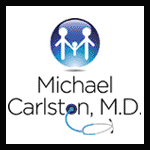Most of my patients are concerned about adverse effects of prescription medications. My own skeptical attitude on this and other issues underlies my approach to patient care, and has done so for as long as I have been practicing medicine.
Prescription medications can be life saving, but for many reasons, they can also cause problems. Most of the problems they cause are not so bad, but others are lethal. Some of their most devastating ill effects are quite unpredictable. Too often the medications do not work that well either, despite the incredible sums spent marketing them to all of us (doctors and patients) as simultaneously powerful and harmless. Using these medications is a trade-off between risk and benefit. None of them are “a sure thing”, and it is wise to carefully consider all options before choosing the prescription route.
Generally Americans are not as critical of prescription medications as we should be. Almost on a daily basis I see patients who are suffering the ill effects of some medication, and too often the connection between the medication and the patient’s distress is unrecognized. Sadly, it is not only the patients who are unaware. In fact, numerous patients have complained to me that another physician denied that the bad reaction they had been suffering was caused by the medication. Usually that adverse effect has been well-known, or at least well-documented in the medical literature, and it only takes a minute to look it up. Other times the particular adverse effect is rare and the physician’s adoration of prescription medication keeps him/her blind to the harm it is causing. Regardless of the reasons for this problem, a new study adds to the evidence affirming that those of us with this world view are right to be skeptical.
The study looked for a connection between a variety of medications and violent behavior. Twenty three drugs apparently made those using them more likely to commit acts of violence. Eleven of those 23 were antidepressant medications. Six were sedatives. Three were medications for ADHD.
It would make sense for these findings to be spurious. People with emotional problems are more likely to be violent at some point. We have seen a correlation between ADHD and violent behavior. However, like all reviewers I know of, in my opinion these findings are meaningful because of how the study was designed and the unpredictability of some of the results.
One surprise was that the worst drug was a drug used for smoking cessation varenicline (Chantix). Another surprise was that there was little if any increase in violent behavior linked to anti-seizure medication. Only one antipsychotic medication (ABILIFY – arpiprazole) was associated with increased risk of violence. The lack of a general association betwen antipsychotic medication and violent behavior is striking, as those are the patienst most likely to be violent in the first place. This nonassociation strengthens the contention that the other drugs are in fact causative.
In a side note – although ABILIFY was not strongly linked to violent behavior, I am concerned by how intense the marketing campaign supporting it has become. Magazine ads and TV commercials are pushing people to add ABILIFY to their antidepressant medication. At this point in time antipsychotic drugs like ABILIFY have become the most commonly prescribed drugs in America.
Medicine has an unfortunately well-established pattern of relying on drugs that we think are safe and effective, only to later determine that they are so bad that they are banned. Patients complain of bad reactions. The medical community at first disparages these concerns, especially if the ill effects of the medication are psychological. Early reports of PROZAC and other SSRI drugs leading to suicide, and the anti-malaria drug LARIAM causing anxiety, paranoia and psychosis were pooh-poohed by the medical profession. Those adverse effects are now well-recognized.
The bottom line is that you should be careful about using prescription medications. If you feel a medication is causing you harm, seek expert help, but honor your own sense. You know more about you than anyone. You are the resident expert in your own health care team.
